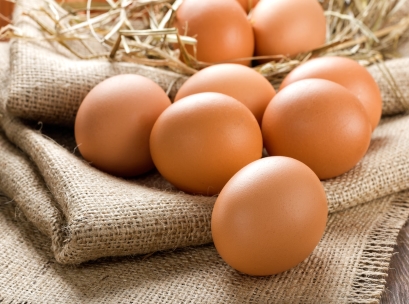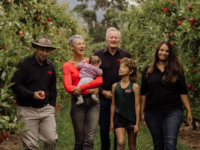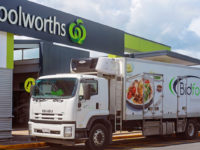
A national body representing egg farmers has highlighted the impact of high grain costs and low returns on egg producers, saying the solution lies with retailers.
Melinda Hashimoto, CEO of Egg Farmers Australia, told Inside FMCG that
grain costs are “by far the biggest cost” impacting egg producers and an increase in the retail price is needed to reflect changes caused by the drought.
“There is currently no relief from the drought in sight. A reduction in grain harvested will impact purchases by egg producers across the nation as grain costs rise substantially, into the next season,” Hashimoto said.
“An increase in egg price from retailers is the only way that the industry can continue to be sustainable.”
About half of all eggs are bought by consumers in supermarkets and grocery stores, while the rest goes to food manufacturers and food service outlets.
“Egg producers have experienced increased angst over the past 12 months due to the pinch points along the supply chain. Retail prices have moved from $3 a dozen to $3.10 for caged eggs, $4.06 to $4.27 and free range from $4.87 to $4.95. Returns to producers do not meet the increased costs of day-old chicks and pullets as feed costs for hens have more than doubled in the past twelve months,” she said.
While major supermarkets in Australia have committed to phasing out caged eggs, Hashimoto says that supermarkets have not acknowledged the continual restructures the egg industry has undertaken without compensation.
The body is working with supermarkets to help them better understand production costs across all systems to ensure a fair return.
Coles acknowledged the rise in grain prices and appears to be absorbing the cost of higher egg prices without passing them onto consumers.
“An increase in grain prices as a result of drought has seen the wholesale price of eggs increase in recent months and Coles has accepted higher prices from egg suppliers,” a Coles spokesperson told Inside FMCG on Friday.
Woolworths said it is working with egg suppliers to offer affordable prices to consumers but didn’t indicate plans to increase the retail price.
“Due to drought and high input costs, we’re currently seeing an impact on egg supplies across Australia. We’re monitoring the situation closely with our egg suppliers and working hard to ensure our customers have continued access to high quality eggs at affordable prices,” a Woolworths spokesperson told Inside FMCG.
Similarly an Aldi spokesperson said that the retailer takes industry pressures into account when adjusting prices.
“We support our egg suppliers impacted by drought and work collaboratively with them through long standing and stable agreements. These take into account challenges the market may be facing at any given time including surplus stock, shortages and cost pressures. We work with
suppliers to adjust prices when necessary based on these conditions,” the spokesperson said.
Industry improvements
Australian Eggs commissioned the CSIRO to design a comprehensive research program over a three year period to provide the industry with a better understanding of community attitudes and drive continuous improvement within the industry.
“Transparency is the cornerstone of building community trust and acceptance as people want access to accurate information to know how their food is produced or products manufactured,” she said.
The body has committed that the Animal Welfare Standards and Guidelines for Poultry, currently under consideration, be mandatory. The approval of the standards and guidelines by agriculture ministers will pave the way for the standards to become state and territory legislation.
















